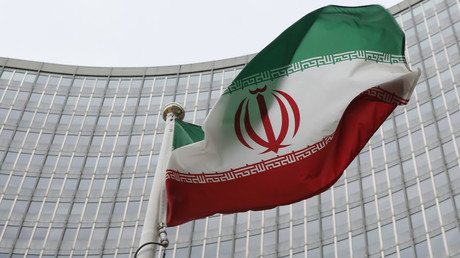Will Iran’s oil exports fall to zero?
The deadline for implementation of US sanctions on Iran is just days away, and the Trump administration is having second thoughts about how hard to press the Islamic Republic.
More accurately, there seems to be disagreement from within the Trump administration. According to the Wall Street Journal, Secretary of Treasury Steven Mnuchin is leaning towards a more cautious approach, which would mean refraining from punishing the European Union for its efforts at keeping business ties alive with Tehran.
One of the key issues is the use of SWIFT, a financial-messaging service that is critical to global finance. SWIFT helps process international financial payments, and the cooperation of SWIFT during the prior round of Iran sanctions between 2012 and 2016 was critical in isolating Tehran.
This time around, Europe is resisting the US’ “maximum pressure”campaign. The EU is forbidding European companies from complying with US sanctions, although the measure is mostly toothless.
Nevertheless, top officials from within the Trump administration are at odds over how far to go. “Our objective is to make sure that financial institutions do not process sanctioned transactions,”Mnuchin told the WSJ last week. The Treasury Department is “having very specific discussions with SWIFT,” Mnuchin said, before adding that “I will use all the tools in my power to make sure that sanctioned transactions do not occur.”
However, Mnuchin is wary of pressing too hard, fearing that it might lead to less help from Europe in regards to Iran. Also, others fear that the hard line will spur Europe and others into seeking an alternative financial architecture that could undermine US dominance over international finance in the long-term. Already, the overuse of sanctions seems to be adding momentum to efforts to use alternative currencies to the US dollar.
Europe’s effort at building a “special purpose vehicle” (SPV) to help European companies evade US sanctions is evidence of this danger. Recent comments from the French foreign minister hinted at a broader campaign for the SPV to undercut US influence. The SPV is being setup for the sole purpose of skirting Iran sanctions, but it could have broader uses. The SPV “aims to create an economic sovereignty tool for the European Union beyond this one case. It is therefore a long-term plan that will protect European companies in the future from the effect of illegal extraterritorial sanctions,” a spokeswoman for the French foreign minister said.
Meanwhile, Trump’s national security adviser John Bolton, who has long pushed for regime change in Iran, unsurprisingly favors a hardline approach. He wants to sanction SWIFT and punish banks doing business with Iran.
The internal battle is creating confusion, and the mixed messages are grating on European capitals. “Still waiting for US replies on all these issues,” a senior European diplomat told the WSJ last week. “Zero clarity.”
November 4 is rapidly approaching, and despite the confusion on what the US will do, the pressure campaign is nevertheless having the effect of curtailing Iran’s oil exports. The Chinese government has reportedly told its state-owned companies not to book purchases from Iran, a surprise move after repeatedly vowing not to comply with American demands. The decision by Beijing is a huge blow to Tehran, and it could translate into more export losses. The WSJ reports that CNPC and Sinopec have not secured any shipments from Iran for November. In September, China imported 600,000 bpd from Iran.
The recent decline in oil prices might provide just a bit more breathing room for countries to cut out Iran, and a bit more leverage to Washington as it seeks to eliminate Iran’s oil exports. “There may not be much need for waivers because [Tehran’s oil buyers] are stopping business with Iran even before sanctions start,” an American official told the WSJ.
However, exports will not fall to zero. India has already booked some shipments from November and is actively seeking a waiver from the United States. Iran will also be able to smuggle shipments and discount cargoes in order to keep the oil flowing to some degree.
Moreover, cutting out the 1.6-1.7 million barrels per day of oil exports from Iran (as of September) entirely would likely tighten the oil market beyond what Washington is comfortable with. As a result, Iran’s oil exports will not fall to zero.
This article was originally published on Oilprice.com



0 Comments:
Post a Comment
Subscribe to Post Comments [Atom]
<< Home